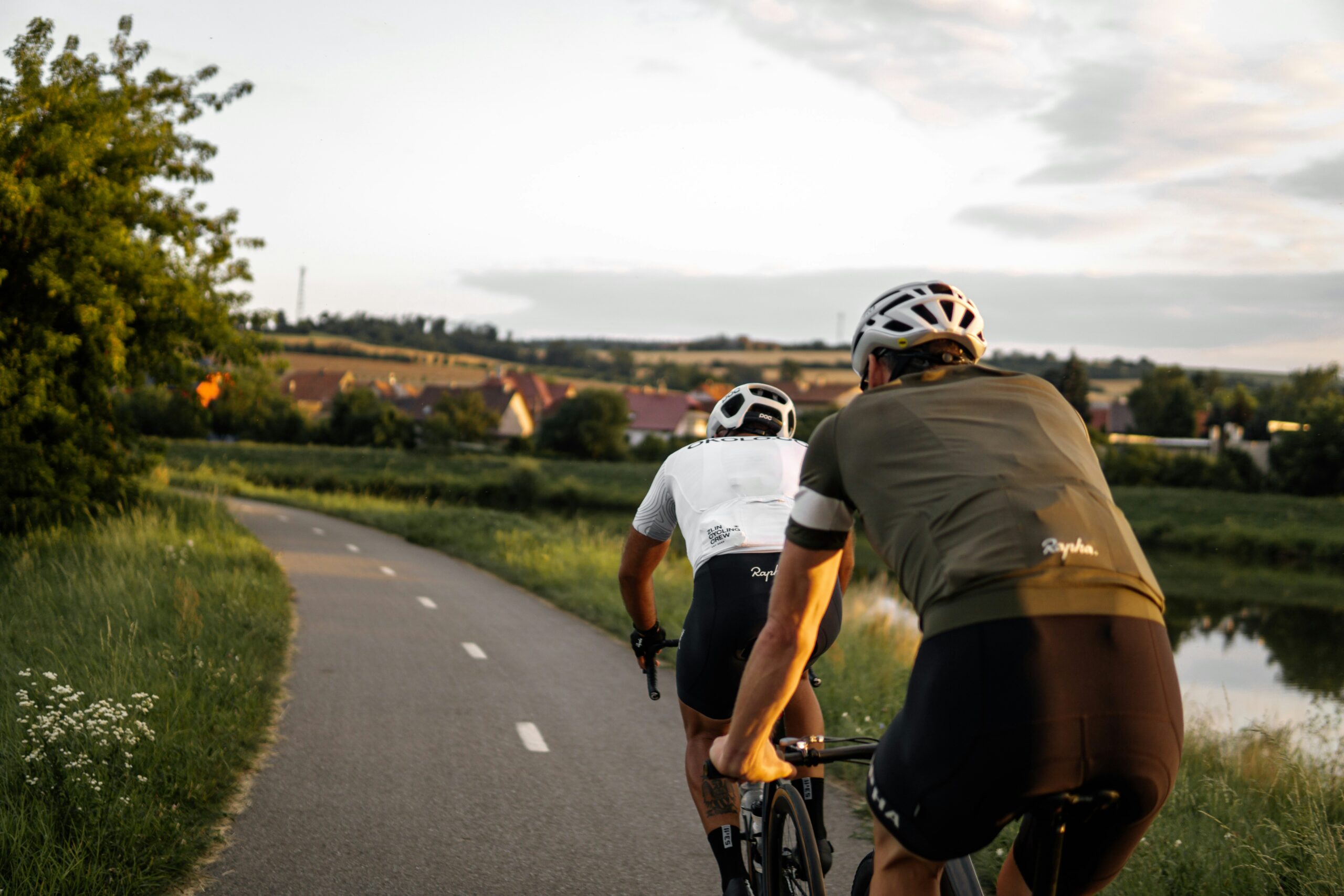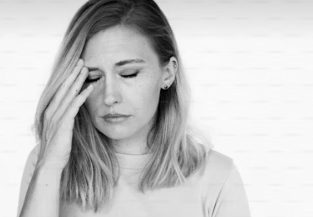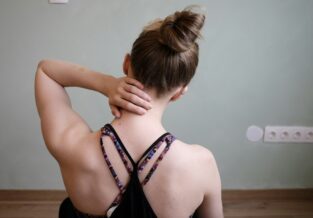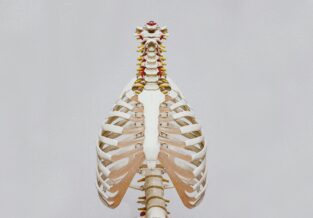Neck Pain and Cycling
Published on
26 Apr 2024


Written by
Jacob Stefanoff
Senior Physiotherapist
Call us on: (03) 9975 4133
Cycling completely changes the weight distributed through your muscles and spine, but also bends the back and neck into an unnatural position that is often sustained for lengthy periods of time.
Neck pain from cycling usually stems from poor posture and weak muscles. Pain caused by neck hyperextension (looking up to see where you are going) is made worse by positional issues on the bike, combined with a lack of flexibility.
The Cause
Just as you have core stabilisers around your lower back, you have stabiliser muscles called deep neck flexors around your neck to hold your head up. When your neck stabilisers are weak or fatigue quickly it is left to the trapezius muscle (that goes from the base of your skull to the tip of the shoulder) to support your head as you lean forward. And when these ‘stand-in’ muscles fatigue you can experience pain in the back and sides of your neck. Restore balance by keeping the neck muscles loose and relaxed through a routine of strengthening and stretching exercises.
Be aware you may also subconsciously be tensing your neck and upper trapezius muscles when riding. Possibly bracing yourself on uneven terrain, hurtling along at scary speeds, or stabilising yourself due to poor technique and swaying from your pelvis and lower trunk. This too can result in fatigue of these muscles, development of muscle spasm and painful trigger points as well as stiffness.
Management and Rehabilitation
Manual therapy techniques will reduce pain and stiffness by mobilising the cervical spine, as well as the surrounding soft tissues.
Massage with trigger point therapy and deep tissue release will relieve muscle spasm and improve flexibility.
Acupuncture may be an effective modality in treatment as well.
Physical therapy will include providing you with appropriate stretches to maintain flexibility but more importantly strengthening exercises for the deep neck flexors. These will include lots of chin tucking exercises and mini sit-ups/crunches with your head.
It’s best to get specific exercises from your local physical therapist, as every individual is different and there may be other underlying pathology or previous injury (like whiplash) that could be complicating the problem.
Prevention
Body conditioning tips
The neck muscles work together with the scapular (shoulder girdle) stabilising muscles, including the middle and lower trapezius muscles and the serratus anterior muscle. Strengthening these will also help off-load the upper trapezius, levator scapular and anterior neck muscles.
Exercises could include rowing- type actions with an emphasis on pulling the scapular back and together, as well as push ups and many other activities using Swiss balls and resistance bands.
Your physical therapist can provide you with a rehab programme to manage your neck pain and preferably prevent it. They can also offer advice regarding your ergonomics in your daily chores and work. This is particularly important if you sit for hours at a computer or driving, or if you are involved in manual labour and lifting/carrying, as these could all be aggravating your neck pain. Small changes in how you carry out your work and daily chores can make a big difference in neck posture and subsequent pain.
Bike set up tips
Change your posture on the bike. If you’re reaching too far forward, or your handlebars are too low, shorten the stem to shorten your reach. Raise your bars and riding more upright will reduce the strain you’re putting on your back and neck. Don’t forget to change your hand positions at regular intervals, and sit up on the bike to stretch, straightening out your neck and back to vary the loads on the different muscle groups.
Happy bike riding!!
About the Author
Jacob Stefanoff — Senior Physiotherapist
Jacob has a very caring and empathetic nature and uses a holistic approach to rehabilitation. He has worked in multiple private practice settings in Sydney along side Olympic Sports Specialist Physiotherapists with professional athletes in their sporting fields. Jacob has experience with complex chronic pain, nerve pain and experience with complex lumbar spine, pelvic and hip conditions.


